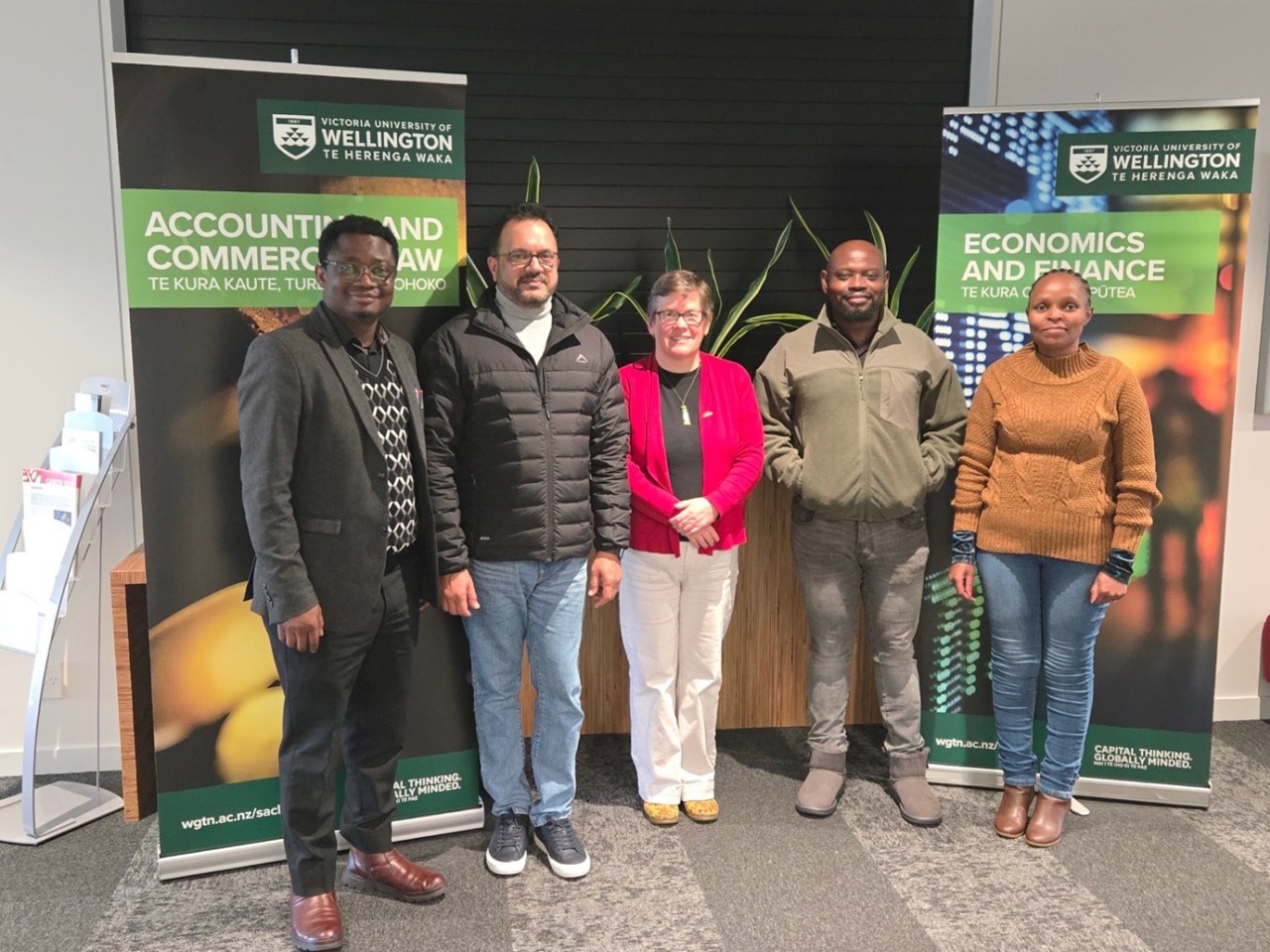WSU STRENGTHENS GLOBAL POSTGRADUATE PARTNERSHIPS THROUGH STRATEGIC VISIT TO NEW ZEALAND

With the aim to ensure Walter Sisulu University’s future scholars are both globally competitive and locally relevant, a high-ranking delegation from WSU recently embarked on a visit to the prestigious Victoria University of Wellington in New Zealand to explore best practices from their counterparts.
The move came as WSU’s Faculty of Economic and Financial Sciences pushes ahead with its bold plans to strengthen its Master’s and PHD programmes to maintain international standards.
“This visit has provided us with a valuable lens into how world-class institutions build robust research cultures. What stood out most was how every element from supervision and student support to ethics, funding, and data management works seamlessly together to empower postgraduate success,” said Faculty Professor Manoj Panicker, who was on the trip.
Respected academics Professor Joseph Akande and Dr Nomanyano Mnyaka-Rulwa joined Panicker in the strategic August visit to New Zealand.
Envisaged changes in the implementation, design and management of the two WSU post graduate programmes are set to transform the faculty into a globally-recognised powerhouse.
Panicker added that the faculty intends to adapt these models to suit WSU’s local context while maintaining international quality standards.
The faculty has viewed the trip to New Zealand as a step towards transforming the postgraduate education landscape of WSU and an opportunity for WSU to gain access to international funding institutions and global researching networks.
The trip was part of WSU’s broader Vision 2030 strategy and is expected to build the foundation for full research postgraduate programmes in Accounting, Finance, and Economics programmes.
During their time at VUW, the team engaged in intensive workshops and meetings with academic leaders, research support staff, and postgraduate administrators to learn how top-tier universities cultivate thriving research ecosystems.
Panicker said throughout the visit, the delegation gained a deep understanding of how VUW integrates its research operations, academic supervision, and student support systems.
The WSU team also observed how structured supervision training and monitoring systems, combined with robust academic, administrative, and psycho-social support, contribute to a high-quality postgraduate experience, Panicker added.
The team also explored digital research tools such as candidate tracking software, ethics review systems, and analytics dashboards, all of which enhance research oversight and productivity.
These insights offered WSU a clear roadmap for modernising its own postgraduate framework in a way that merges global best practices with the university’s African and community-focused identity, noted Panicker.
“We were particularly inspired by how VUW integrates its research office, library, and innovation units. It showed us that postgraduate success is not built on academic excellence alone, but on the strength of interconnected systems that support both staff and students,” said Panicker.
The discussions in New Zealand are expected to open the window for future collaboration between the two universities.
These include potential co-supervision models and joint research projects, access to international research networks such as the African Accounting and Finance Association (AAFA), the European Accounting Association (EAA), and the International Association for Accounting Education and Research (IAAER), as well as joint funding applications through global research streams such as Horizon Europe.
The visit further paved the way for possible academic staff exchanges and workshops which are expected to strengthen supervision capacity and research ethics training at WSU.
Building on these learnings, the Faculty of Economic and Financial Sciences plans to develop a comprehensive “design playbook” to guide the creation of new master’s and PhD programmes, Panicker said.
“The faculty will also pilot supervisor development sessions and structured student progress reviews, while introducing integrated research support systems that align funding, ethics, and publishing. These efforts will be closely tied to WSU’s institutional quality assurance and accreditation frameworks, ensuring that the university’s postgraduate offerings meet the highest academic standards,” he concluded.
He added that their goal is to produce research that speaks to Africa’s development challenges while meeting international standards of academic excellence.
By Anita Roji
